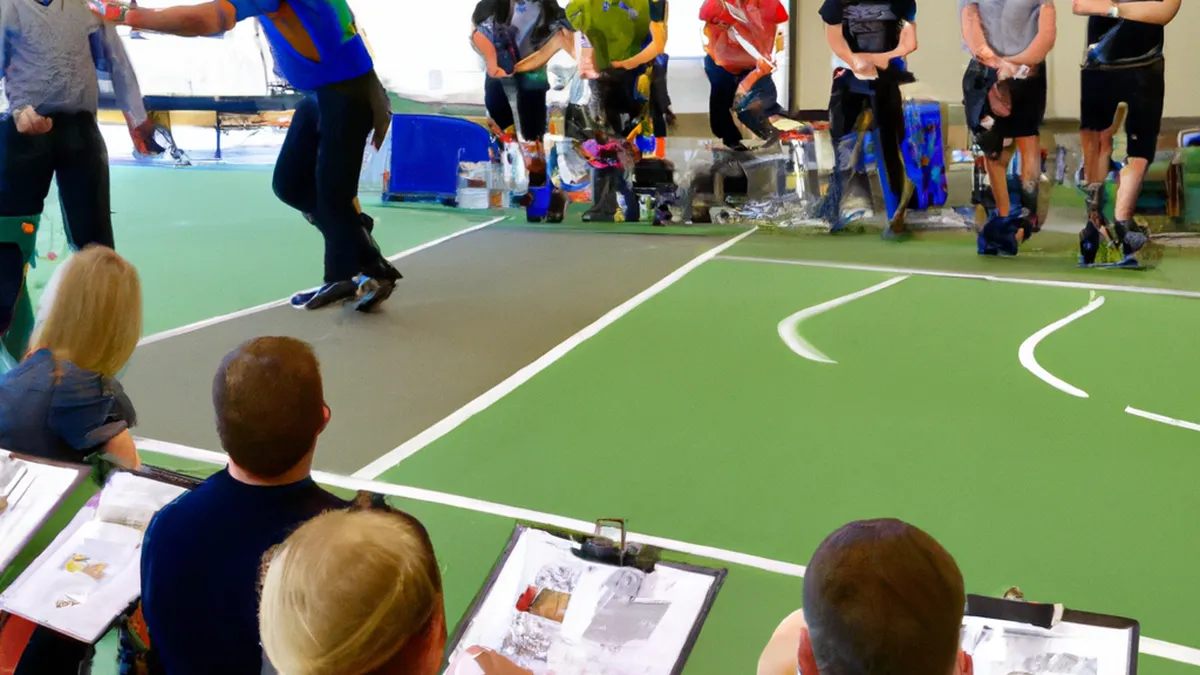Accelerating Growth via Skills Progression Charts
How to Use a Skills Progression Chart for Handling Training
Train employees effectively to achieve success in a competitive landscape. A skills progression chart helps visualize employee development over time. This blog post guides you on using a skills progression chart for effective training, benefiting both trainers and employees.
Understanding the Skills Progression Chart
The skills progression chart outlines required skills for specific roles. It shows various expertise levels, from beginner to expert. Customize this chart to create a tailored roadmap for skill acquisition.
Why Use a Skills Progression Chart?
A skills progression chart provides clarity and direction. It helps trainers and trainees understand necessary skills for success. The chart sets clear expectations, allowing employees to visualize their growth trajectory. This transparency motivates employees and aligns their goals with organizational objectives.
Setting Up Your Skills Progression Chart
First, identify key skills necessary for each role. Conduct a skills gap analysis to determine current competencies. Break identified skills down into levels: beginner, intermediate, advanced, and expert.
Define proficiency for each level with specific examples. For instance, a beginner understands basic software tools, while an expert can troubleshoot complex issues, optimize workflows, and train others. This clarity helps employees recognize areas for improvement.
Tips for Implementing the Chart
1. **Involve Employees in the Process**
Engage employees in creating the chart. Their insights can enhance the chart’s relevance. This involvement fosters ownership and accountability, increasing commitment to development.
2. **Regularly Update the Chart**
Review and update the chart regularly. The business landscape changes due to technological advancements and market demands. Regular updates ensure the chart remains relevant and reflects industry standards.
3. **Use Visuals for Better Clarity**
Incorporate visuals, such as graphs or progress bars, for enhanced understanding. Visuals simplify complex information. A well-designed chart captures attention and encourages engagement, making learning enjoyable.
Incorporating Training Methods
After preparing your chart, integrate it into training programs. Align training sessions with the chart levels. For example, tailor training materials for employees progressing from beginner to intermediate. Offer diverse learning methods, including on-the-job training.
Conclusion
In summary, using a skills progression chart effectively enhances employee training and development.
Below are related products based on this post:
FAQ
What is a skills progression chart and how does it help in training?
A skills progression chart is a visual tool that outlines the required skills for specific roles, displaying various expertise levels from beginner to expert. It helps trainers and trainees understand the necessary skills for success, sets clear expectations, and allows employees to visualize their growth trajectory, ultimately motivating them and aligning their goals with organizational objectives.
How can I customize a skills progression chart for my organization?
To customize a skills progression chart, first identify key skills necessary for each role within your organization. Conduct a skills gap analysis to assess current competencies. Break down the identified skills into levels such as beginner, intermediate, advanced, and expert, defining proficiency for each level with specific examples to provide clarity to employees on areas for improvement.
What are some tips for effectively implementing a skills progression chart?
Some tips for effective implementation include involving employees in the creation of the chart to enhance relevance and foster ownership, regularly reviewing and updating the chart to reflect changes in the business landscape, and incorporating visuals like graphs or progress bars for better clarity and engagement. Align training sessions with the chart levels and offer diverse learning methods to support employee development.















Post Comment